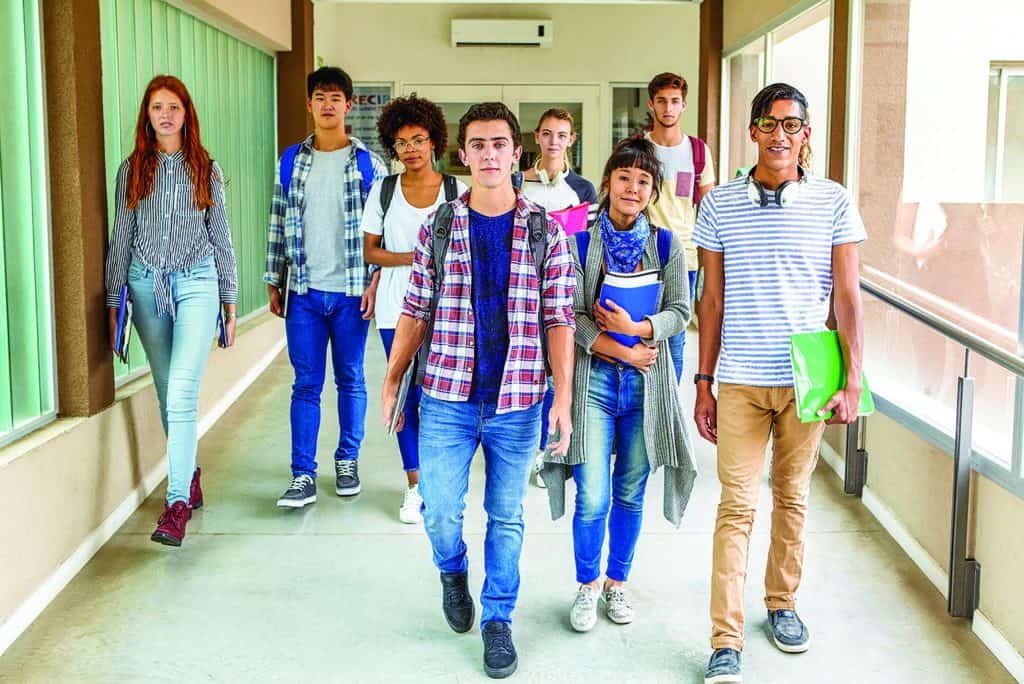
On Monday, July 13, Attorney General T.J. Donovan joined a coalition of 18 attorneys general in filing a lawsuit to stop a new federal rule that threatens to bar hundreds of thousands of international students from studying in the U.S.
The lawsuit, filed in the U.S. District Court in Massachusetts against the U.S. Department of Homeland Security (DHS) and U.S. Immigration and Customs Enforcement (ICE), challenges what the coalition calls the federal government’s “cruel, abrupt, and unlawful action to expel international students amidst the pandemic that has wrought death and disruption across the United States.”
The lawsuit seeks a nationwide injunction to stop the rule from going into effect and contains 40 declarations from institutions affected by the new rule, including the University of Vermont (UVM).
“If this rule is allowed to go into effect it will be a huge loss to Vermont and Vermont students,” said Attorney General Donovan. “It’s a plain violation of law and we will not stand for it.”
“On university campuses throughout the country, and around the world, international students have been a major source of intellectual rejuvenation and diversity,” said UVM President Suresh Garimella. “They enrich our communities and contribute daily to discoveries that benefit our entire society. And they are key to the ongoing success of American higher education.”
The lawsuit challenges ICE’s abrupt policy change that reversed guidance previously issued on March 13, 2020, that recognized the Covid-19 public health emergency, provided flexibility for schools, and allowed international students with F-1 and M-1 visas to take classes online for the duration of the emergency.
On July 6, ICE announced that international students can no longer live in the U.S. and take all of their classes online during the pandemic, leaving thousands of students with no other choice but to leave the country. ICE further demanded that educational institutions advise the federal government by July 15, whether they intend to offer only remote courses in the fall semester and to certify by Aug. 4, for each of the institutions’ international students, that the students’ upcoming coursework this fall will be in person or a “hybrid” of in-person and online learning in order to maintain their visa status.
As of July 10, UVM had 566 active F-1 students holding citizenship from 67 countries, according to the declaration submitted with Monday’s lawsuit: “While the impact on an individual student under the rule is obvious, the loss to UVM and the process of education, research, and discovery is a further consequence. Students who are denied visas, or have visas revoked, will experience a negative impact on their progression to degree, adding significant time and potentially cost to their education. UVM will have lost students who enrich the learning of other students, our faculty, and our community. Some of these students, through no fault of their own, will not be able to return when UVM is able to return to in-person teaching.”
The lawsuit details the substantial harms that the new rule places on schools and students. It also alleges that the federal government’s actions are arbitrary, capricious, and an abuse of discretion because they reversed previous guidance without explanation, input, or rationale – in violation of the Administrative Procedure Act – and failed to consider the need to protect public health and safety amidst the ongoing Covid-19 pandemic.
The lawsuit also alleges the new rule imposes significant economic harm by precluding thousands of international students from coming to and residing in the U.S. and finding employment in fields such as science, technology, biotechnology, healthcare, business and finance, and education, and contributing to the overall economy. The 2018 Economic Value Report for Vermont, published by NAFSA: Association of International Educators, indicated that the 1,692 international students enrolled in institutions of higher education statewide contributed $80.6 million and supported 777 jobs.
Joining Attorney General Donovan in today’s lawsuit are the attorneys general of Colorado, Connecticut, Delaware, District of Columbia, Illinois, Maryland, Massachusetts, Michigan, Minnesota, Nevada, New Jersey, New Mexico, Oregon, Pennsylvania, Rhode Island, Virginia, and Wisconsin.




